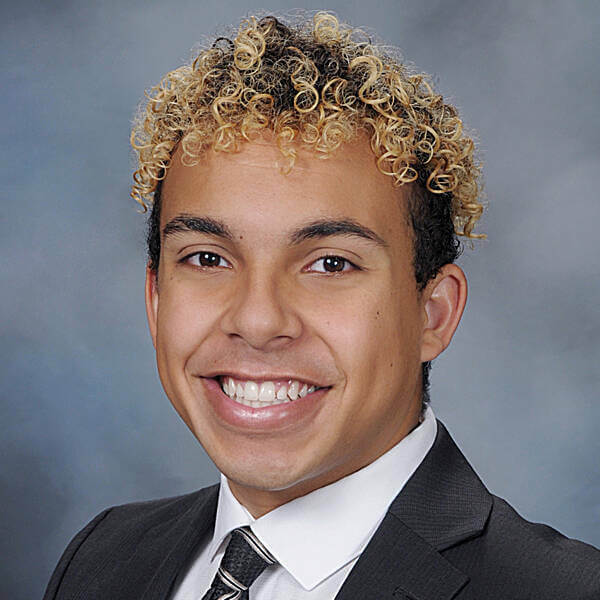Wrestling with identities
I would describe myself as mixed. Other people, and I've kind of adopted it I guess, would describe me as an Oreo. I'm definitely…my dad is Black and my mom is White, but I was raised very White. I've been in Catholic schools since I was in first grade, so my upbringing was pretty White. The way that I talk, the way that I act, you would probably class that as more White than Black, but I'm definitely mixed.
I definitely didn't used to think about it. I'd probably say even through probably until I started traveling, which would have been sophomore year here probably. In high school. I didn't really think about it too much because it was one of those things that didn't really matter. You get snarky comments about stuff from random people, but it didn't impact my daily life or how I think about myself or anything. For me, even in high school and my first few years at Notre Dame, it's always been something that's like a joke. Like, oh the only Black kid in Glee Club. Like, oh the only Black kid in our show choir and stuff like that. And I make those jokes and sometimes it's funny and sometimes—this hasn't really been a thing at Notre Dame—but in high school it can be somewhat hurtful. Like, oh, you got into Notre Dame because you're Black. Like, oh, you're like dance captain, certain things like that. But that really hasn't been too big of an issue at Notre Dame just because I think people that think that way probably don't want to be friends with me, to be frank, anyways, and I don't want to be friends with them.
And I've surrounded myself with good people, and I've heard like racist people at Notre Dame definitely exist. I've just been fortunate not to come across them too often. Like I've heard things, but never to my face or anything. But I would say that the biggest thing at Notre Dame was kind of me wrestling with my identity. With BLM and stuff, my identity as a Black person but also someone that's pretty culturally White. And I think that's something that people don't realize with being mixed. It's like you can pass as maybe both if you want to, but at the same time you feel like you don't belong to either. I'm not White because I don't look White, but I'm very culturally White. But if I was with a group of Black people and even my dad's family lovingly ribs me about this, and it's something that I've become more like secure about now. But when I was insecure about it, it kind of made me think like in my head. But just like, you know, I don't talk Black, I don't sound Black, I don't act Black. So therefore, I don't feel like I belong there. And then with certain issues, you know, I don't look White, so therefore I don't really belong anywhere is sometimes how I would feel. I even reached out during BLM to members of the Black community here at Notre Dame, just talking about like—and other like mixed people—like how did…because there’s certain people that I know that are mixed but very strong in their Black identity I would say, even though they're pretty similar to me and maybe they don't talk or act super like Black. And just like being more secure in myself, as you know, maybe I don't talk a certain way or act a certain way, but that doesn't make me any less Black, you know. So kind of wrestling with that as a mixed person has been like a big development, I would say, during my time here.

Liam Karr
Liam Karr is a senior majoring in Arabic, political science, and history.